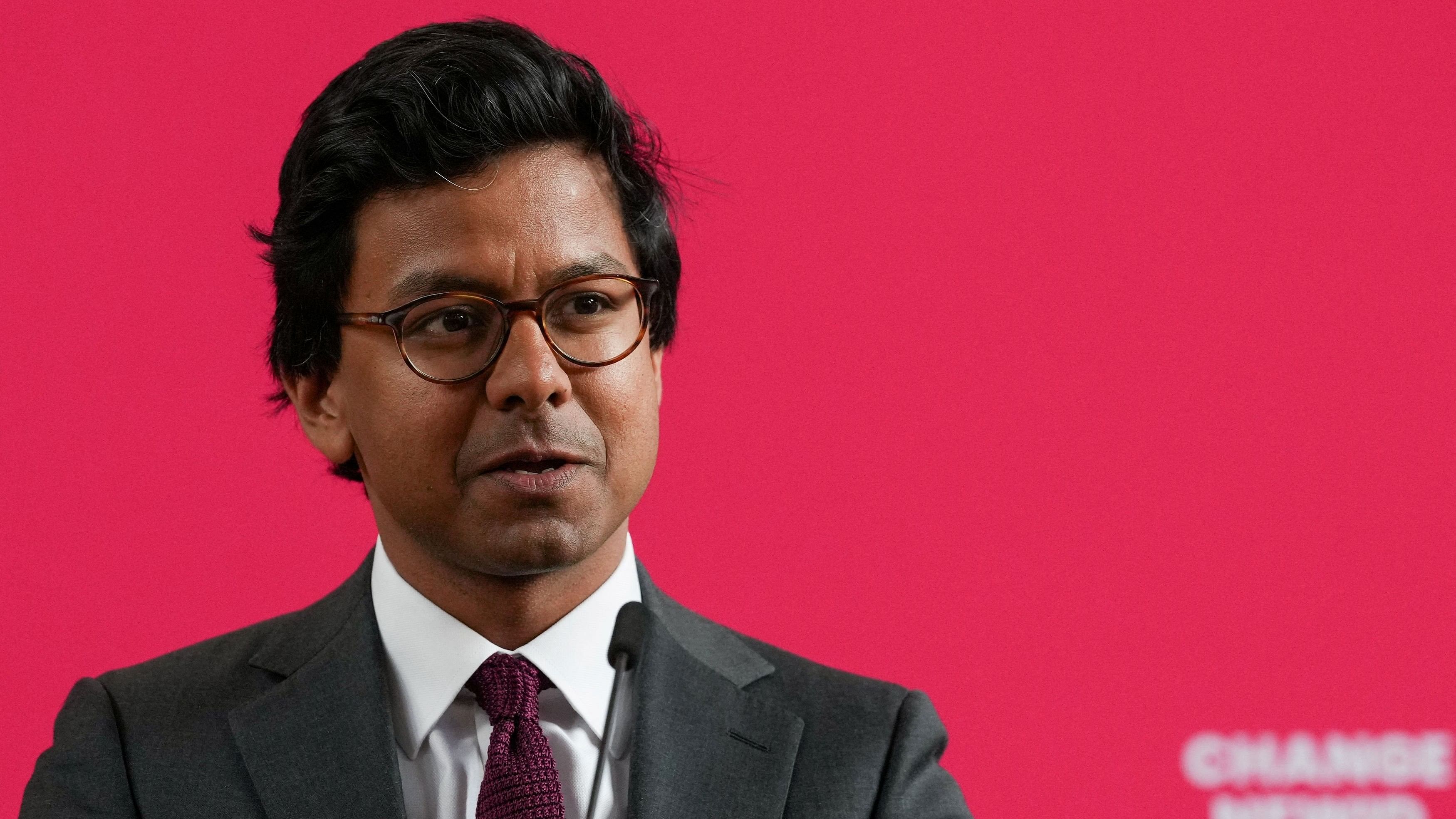
Kanishka Narayan
Credit: Reuters Photo
London: Kanishka Narayan, the first Indian-origin member of Parliament from Wales, will kick off his maiden visit to Delhi since winning his seat in the UK's House of Commons as part of a parliamentary delegation for bilateral exchanges on environmental policy this weekend.
The Bihar-born politician, who made history as the first Welsh MP from an ethnic minority background to be elected in the July general election, will be joined by fellow backbench Labour MPs on the tour of India – a country he visits often with family.
Now, as the new MP for the Vale of Glamorgan in south-east Wales, Narayan also hopes to be an ambassador attracting more Indian tourists to his scenic coastal constituency and the town of Barry.
“I'm really excited about the visit, which offers an opportunity to exchange ideas with colleagues and counterparts in India on environmental policy,” Narayan said in an interview ahead of the visit.
“My relationship with India, both personally and professionally, remains a deep one and certainly a very regular one. This particular visit is focused on bilateral exchanges on environmental policy, taking part in conferences and speaking to people in the wider community on matters of environmental policy,” he shared.
With roots in Muzaffarpur, Narayan's family moved to the Welsh capital of Cardiff when he was a little boy.
He went on to study at Oxford and Stanford universities before a stint in the private sector and working as a civil servant. As a Labour Party member since his teens, he felt drawn to pursuing his passion for a bottom-up approach to politics – a vision that connected with voters in the last election.
“It's interesting when I got elected a number of people said to me that given my roots in Bihar, politics is also in my DNA. In some ways, I think it's consistent with growing up in a household where my parents, certainly my dad, were always very interested in politics and I think generally they feel the sense of excitement and optimism that I feel about it,” he said.
“During the election campaign, I and my volunteer team spent pretty much every single week knocking on about 50,000 doors and speaking to about 20,000 people directly.
"I think that was really critical because we are in a context of relatively low trust in politics done from the top; what I'm passionate about is doing politics up from the bottom within our community and I think that resonated very well with a bunch of voters,” he reflected on his impressive win over the Tory incumbent.
The past few months since his entry into the Commons have been filled with hope and optimism on the back of that decisive electoral mandate, even as he grapples with the sheer scale of the challenge ahead.
He has set out three main priorities for his constituency and Wales more broadly – to attract good quality green energy jobs to the region, to rebuild safety and security amid dwindling police numbers and to fight child poverty to give young people opportunities for a brighter future.
His Indian heritage also influences his passion for the India-UK relationship, which he sees as holding out great promise under the Labour Party-led government.
“We're all very hopeful for the FTA [free trade agreement], which was promised by the prior [Conservative] government for a long time. Now that we have a decent, serious government back in charge which is passionate about India, we are full of hope about the timing and the scope of the FTA delivery for both the UK and India,” said Narayan.
As vice-chair of the Labour Indians diaspora organisation, the new MP is confident that the connection between British Indian voters and the Labour Party remains on a strong footing.
“The relationship between India, the British Indian community and the Labour Party is an enduring and long-term one. It is rooted in history and a lot of the values that I think we share are values of the Labour Party,” he said.
Asked about some British Indians objecting to meat and alcohol being served at the Diwali reception hosted by Prime Minister Keir Starmer and resulting in an apology from Downing Street over the organisational “mistake”, Narayan reiterated the open-minded approach of the new government.
“We're always open to listening, to learning together, and to doing the right thing together, especially with our friends in the wider Indian community,” he said.
“The long-term relationship between the British Indian community and the Labour Party is one which is as deep as it has been in the past. Also now, increasingly, it is actually one where British Indians are represented in the Labour Party in a full way as well. I am just one of many examples of that,” he added.